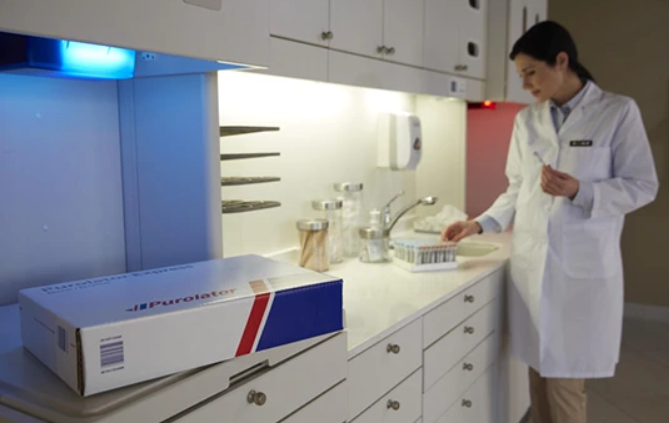
The healthcare staffing landscape is shifting in exciting ways, opening doors for nursing professionals looking to level up their careers. While some parts of the industry face headwinds, specialized nursing roles are seeing unprecedented demand, especially in critical care and pediatrics. For nurses willing to expand their skills and credentials, the opportunities have never been more promising.
Think of healthcare staffing as a dynamic ecosystem that’s constantly evolving. Healthcare jobs are growing significantly faster than most other fields. This represents real opportunities for healthcare professionals, particularly those in specialized nursing roles where talent shortages persist.
Market Dynamics and Growth Patterns
Healthcare staffing companies are getting creative with their business models to keep up with changing needs. While some regions are seeing consolidation, others are experiencing remarkable growth, especially in specialized care. The path through nursing graduate school has become increasingly valuable and it’s not just about credentials anymore. Facilities with more BSN-prepared nurses consistently deliver better patient outcomes and lower mortality rates. This isn’t just good news for patients – it’s a clear signal about where the industry is heading.
The rise of telehealth and remote patient monitoring has created an entirely new dimension in healthcare staffing. Virtual care teams now require nurses with both clinical expertise and technical proficiency, expanding the traditional role boundaries. This digital transformation has sparked demand for nurses who can effectively navigate telemedicine platforms while maintaining high standards of patient care. Healthcare organizations are increasingly offering premium compensation packages for professionals who can bridge this clinical-technical gap.
Another significant trend reshaping healthcare staffing is the growing emphasis on population health management. Healthcare organizations are expanding their community health initiatives, creating new roles for nurses who can work effectively in preventive care and health education. This shift towards proactive healthcare delivery has sparked demand for professionals who can develop and implement community wellness programs, manage chronic disease populations and coordinate care across multiple settings. The result is an emerging specialty area that combines clinical expertise with public health principles.
Specialization and Advancement Opportunities
Think of specialized nursing roles as high-demand skills in a talent-hungry market. Healthcare staffing companies are actively seeking professionals in critical care, pediatric nursing and advanced practice positions. The healthcare industry is experiencing a significant shortage of qualified professionals, creating real opportunities for those with the right qualifications. Healthcare organizations are rolling out attractive benefits packages and career development programs to attract and keep top talent in these crucial areas.
One particularly promising area is the emergence of nurse informaticists and clinical data specialists. These roles combine nursing expertise with data analytics skills, helping healthcare organizations optimize their operations and improve patient outcomes. The demand for nurses who can interpret healthcare data, implement electronic health record systems and drive evidence-based practice improvements has created a new career pathway that often comes with significant compensation benefits and leadership opportunities.
Skills Development and Educational Requirements
As healthcare delivery systems become more sophisticated, the bar for nursing expertise keeps rising. Employers increasingly favor candidates who bring additional certifications and specialized training to the table. Forward-thinking healthcare organizations are investing in their staff’s growth, offering continuing education and professional development opportunities to keep their teams at the cutting edge.
Simulation-based training has become increasingly central to nursing education and professional development. Modern healthcare facilities are investing in high-fidelity simulation labs where nurses can practice complex procedures and emergency responses in a risk-free environment. This hands-on approach to skills development, combined with traditional classroom learning, creates more confident and competent healthcare professionals who are better prepared for real-world challenges.
Future Industry Projections
The road ahead looks bright for healthcare staffing, particularly in specialized nursing. The healthcare sector is experiencing sustained growth, creating millions of new jobs in the coming years. This isn’t just about filling positions – it’s about creating sustainable staffing solutions that balance excellent patient care with meaningful professional growth opportunities.
Artificial intelligence and robotics are expected to play an increasingly important role in healthcare delivery, but rather than replacing nursing professionals, these technologies will enhance their capabilities. Future nurses will need to be comfortable working alongside AI-powered diagnostic tools and robotic surgical assistants. This technological integration will likely create new specialized roles for nurses who can effectively coordinate between advanced medical technologies and traditional patient care approaches.
Wrapping Up
The message is clear – staying current and continuing to learn isn’t just an option anymore, it’s essential for career growth in healthcare. Those who invest in their education and maintain up-to-date certifications will find themselves in an enviable position. The industry’s growth trajectory, combined with increasing specialization, creates a perfect storm of opportunity for ambitious healthcare professionals ready to take their careers to the next level.


















